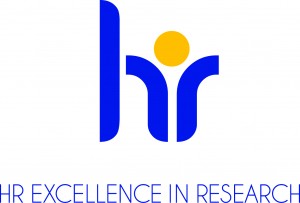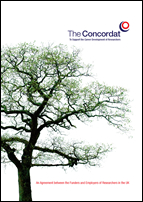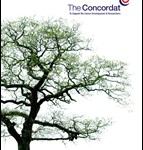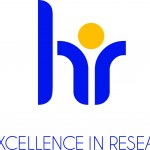 Good news – BU has been successful in retaining the European Commission HR Excellence in Research Award and is now one of 72 universities in the UK who have successfully passed their two-year review.
Good news – BU has been successful in retaining the European Commission HR Excellence in Research Award and is now one of 72 universities in the UK who have successfully passed their two-year review.
The Award demonstrates BU’s commitment to aligning process and practice to the UK Concordat to Support the Career Development of Researchers and therefore improving the working conditions and career development for research staff. In turn this will improve the quantity, quality and impact of research for the benefit of UK society and the economy. The two year review required BU to highlight the key achievements and progress we have made since we gained the Award in January 2013 and to outline the focus of our strategy, success measures and next steps for the following two years.
Key achievements made at BU since 2013 in support of this agenda include:
- Publication of BU’s first Code of Practice for the Recruitment and Development of Research Staff
- Establishment of BU’s Research Staff Association which meets quarterly
- The development and implementation of the BRAD programme based on Vitae’s Researcher Development Framework
- Increased support for research ethics and research conduct
- The launch of the Employee Assistance Programme
- The Academic Career Framework phase 1
- Research staff representation at the University RKE Committee
 You can read our progress review and future action plan (2015-17) in full here: https://research.bournemouth.ac.uk/research-environment/research-concordat/
You can read our progress review and future action plan (2015-17) in full here: https://research.bournemouth.ac.uk/research-environment/research-concordat/
Since 2012 the EC have been exploring a ‘stronger’ implementation approach, including the potential for using quality standards and/or a more formal certification/accreditation process for HR management of researchers across Europe. Recently a new expert group has been appointed to further discussions and Vitae’s recent event, on 23 January, enabled Award holders to provide input into the current five-step process and moving towards a ‘quality assessment’. Detail and outcomes from the event can be found here.
Read the full announcement on the Vitae website here: https://www.vitae.ac.uk/news/72-uk-institutions-have-the-european-commission2019s-hr-excellence-in-research-award
 BU successful in retaining HR Excellence in Research Award
BU successful in retaining HR Excellence in Research Award BU successful in retaining EC HR Excellence in Research Award!
BU successful in retaining EC HR Excellence in Research Award! BU retains the HR Excellence in Research Award
BU retains the HR Excellence in Research Award










 New Nepal scoping review on maternal & neonatal health
New Nepal scoping review on maternal & neonatal health Fourth INRC Symposium: From Clinical Applications to Neuro-Inspired Computation
Fourth INRC Symposium: From Clinical Applications to Neuro-Inspired Computation Writing policy briefs
Writing policy briefs Upholding Excellence: The Concordat to Support Research Integrity
Upholding Excellence: The Concordat to Support Research Integrity ECR Funding Open Call: Research Culture & Community Grant – Application Deadline Friday 12 December
ECR Funding Open Call: Research Culture & Community Grant – Application Deadline Friday 12 December MSCA Postdoctoral Fellowships 2025 Call
MSCA Postdoctoral Fellowships 2025 Call ERC Advanced Grant 2025 Webinar
ERC Advanced Grant 2025 Webinar Horizon Europe Work Programme 2025 Published
Horizon Europe Work Programme 2025 Published Horizon Europe 2025 Work Programme pre-Published
Horizon Europe 2025 Work Programme pre-Published Update on UKRO services
Update on UKRO services European research project exploring use of ‘virtual twins’ to better manage metabolic associated fatty liver disease
European research project exploring use of ‘virtual twins’ to better manage metabolic associated fatty liver disease